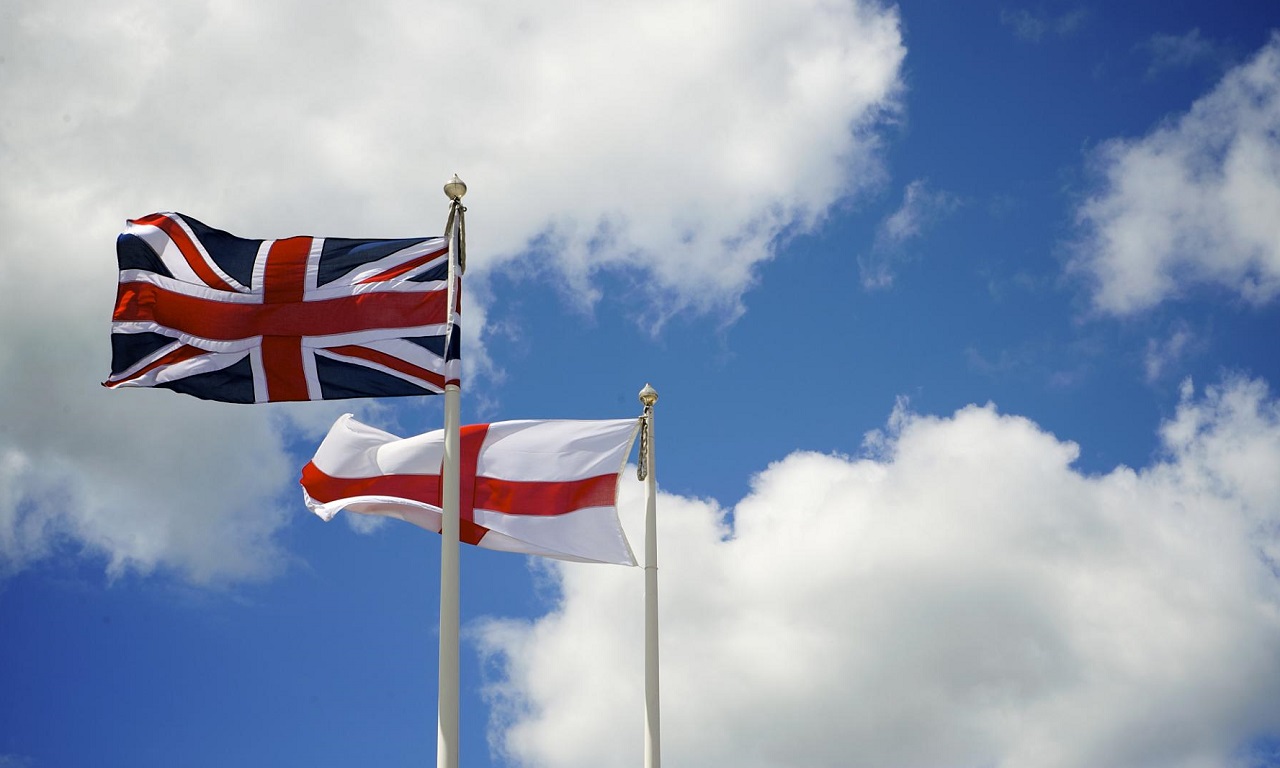Increasing English identification over Britishness poses a number of potential problems that need addressing, not least where it leaves England’s ethnic minorities who tend to favour Britishness over Englishness, argues Dr. Michael Skey.
The English, and Englishness, has become something of a hot topic in the febrile post-referendum environment. In the past couple of weeks, we have seen everything from highly technical debates around constitutional options, as well as the political ramifications of these options to the major political parties, to more subjective ruminations on national identity. Both media reporters and pollsters have also spent a great deal of time running around England trying to understand what it all means to the average wo/man in the street. In many cases, they have argued that the English feel increasingly aggrieved and that their concerns should be actively addressed. At the risk of throwing more fuel onto the fire, I’d like to make three points about the so-called English question, the first two dealing with the relevance of devolution to English people and how it is discussed when they are asked to specifically address it, and, the third, pointing to the impact that devolution across Britain may have on the status of different groups within England.
First, academic studies of the topic have been showing for some time that people in England have been identifying more with England than Britain when asked. As a report written by Richard Wyn Jones and his colleagues noted in 2012, ‘although most people retain an overlapping English and British identity, what has emerged … is ‘a different kind of Anglo-British identity in which the “Anglo” component is increasingly considered the primary source of identity for the English’. However, the ‘when asked’ bit is also crucial as over the same period, devolution barely figures at all when people are asked to name the issues that matter to Britain most, with the economy and immigration dominating. Now, this isn’t to suggest that devolution is completely unimportant but as an issue it only really comes to the fore if people are asked directly to comment on it and/or when it becomes the subject of sustained media interest (generally as a result of some high-profile political event).
This is borne out by my own qualitative research among the ‘ethnic majority’ in England. Rather than asking people what they thought about this or that issue, I adopted a ‘wait and listen’ approach, asking general questions such as ‘what has changed in the past decade?’ and what do you like about living ‘here?’ before moving on to more specific topics. In this way, it was hoped that people would first talk about the subjects and issues that concerned them most. Interestingly, devolution was not a major issue and not one of the people I spoke to raised it of their own accord. When I asked them whether they considered themselves British or English, they did begin to talk about the changing relations between the constituent nations of Britain and their own sense of identity. However, these discussions were often marked by a noticeable degree of ambivalence and uncertainty, with many discussing their own mixed (Irish and Welsh ancestry) before explaining why their sense of identity had shifted in recent times;
Interviewer: Do you consider yourself to be British or English?
Keith: English.
Roger: English first and then British.
Paul: It was the other way round for me at one time …
Jackie: Yes, me too.
Paul: Yeah, but I have changed my opinion and attitude now …
Interviewer: Why is that? What’s brought about that change?
Paul: Because … the way that … I was amazed at what the Welsh think about us. Silly thing. Ian [his son] goes to football … erm … goes down to watch Cardiff play … erm …an English team playing them and y’know, the Welsh nationalism really came out. One of his good friends is a Welshman but he doesn’t think very much of the English.
….
Interviewer: But that has changed in the past what? Five years, ten years or ….
Paul: Yeah, I would say ten years. From being British … er… English to being English-British.
Roger: You see it came home to me when we were in Scotland last year. No, this year. We passed someone’s window and it had ‘I support Scotland and any team that England are playing’.
Keith: Yes.
Roger: Y’know. And you think well that’s their attitude… they’ve got that stuck in their window. That’s their attitude.
Jackie: I don’t feel like that against …
Roger: But they are …
Jackie: Scotland and Wales at all.
Roger: … they are anti-English.
Paul: Oh yeah. Very definitely.
Keith: And yet we pay for the upkeep of their elderly.
Roger: Yes.
Jackie: I do think this political thing is … is a joke. (Middlesex Group)
This quote shows how individuals ‘build’ an argument, drawing on shared experiences and common assumptions, to make their (collective) point. Perhaps the most significant feature is the marked tension between a previous adherence to a British identity, and an increasing willingness to privilege English over British, as a result of the negative attitudes of members of the ‘other’ nations within Britain. These experiences of anti-English sentiments not only produce feelings of resentment but also a degree of puzzlement. Jackie, for instance, contrasts Welsh/Scottish antipathy towards the English with her own more reasonable attitude towards them. Finally, concerns about changing circumstances in Britain not only extend to expressions of anti-English feelings but are also directed at wider political processes, which are dismissed a ‘joke’.
This unwillingness to take Scottish/Welsh political claims seriously was often a feature of these discussions, with many viewing it as a process that upsets, what they considered to be, a satisfactory state of affairs.
Steve: Yeah, I, I, I’m only, I’m only … um … really started to call myself English in the last few years because of this devolution business and I said, ‘well, OK, you want to call yourself a Scottish man, you want to call yourself a Welshman, then I’m an Englishman then. (Manchester Group)
Rod: The trouble was when Scotland wanted to go independent, Wales wanted to go independent and everything like that, I mean, the thing is, that they were trying to disintegrate their … y’know, like their British culture and, the thing is, I think this made people say, well, the Scots wanna be on their own, the Welsh wanna be on their own, so we’re English and that’s it. (Surrey Group)
John: I used to be British but since they seem to have made such a great play of wanting their independence and sod them, I’m English.
Interviewer: Who’s they?
John: Well, the Welsh ….Peter: Welsh, Scots ….(Cheltenham Group)
These examples again suggest that the recent retreat into the category of English is a response to the actions of other national groups within Britain., with John, in particular, viewing Scottish claims to independence as the actions of a truculent ‘other’ who must be taught a lesson. In the process, ‘this devolution business’ has forced people to reflect on issues that had, up until that moment, been taken for granted, in the process producing feelings of consternation. There is an echo, here, of Garfinkel’s research on ‘breaching’ (2004), where the disruption of taken-for-granted routines and assumptions was seen to generate tangible feelings of unease and anger. In this case, it is ‘background expectations’ associated with people’s everyday understandings of (national) self and other that have been challenged.
As well as prompting the use of ‘them’ and ‘us’ categories, these debates also focused attention on the perceived inequities that the English now had to deal with. This idea is expressed in the following extract, where devolution is again defined as something unnecessary, a process that upsets or unsettles what was considered, by many, to be a satisfactory system.
Interviewer: What about the relationship between Britain and England and the rest of the, do you think …
Derek: They’re further apart now ….
Tom: Yeah, I think so. Yeah. I mean, I think things like devolution of … uh … of Scotland ….
Derek: … Wales.
Tom: … Wales as well.
Derek: Well, that was a silly, silly, that’s driven a wedge between, between neighbours isn’t it? It’s like building a, planting a conifer hedge ….
Kathy: Yes, it is, honestly. I was laughing at the analogy.
Derek: Yeah. And, and nobody’s got the guts to cut the hedge down. The fact that we’ve got more bloody Scottish men in the, in the … government …
Tom: … that’s right …
Derek: … than we’ve ever had. And now they’ve got a right to vote on things for us. (Doncaster Group)
In this exchange, we see a complex political process reduced to something as insignificant and ‘silly’ as a squabble between neighbours. This analogy not only belittles Scottish aspirations to nationhood but also places the two groups on equal terms. Furthermore, Scottish autonomy is seen to be the direct result of the inability or unwillingness of political elites to restore the previously existing (and presumably more rational) state of affairs. This is a common complaint among members of the majority English who argue that social and political elites tend to privilege minority interests (whether national, ethnic or otherwise) over themselves. This fairly benign opening is then supplanted by a far more passionately articulated sense of injustice, with reference to the issue of Scottish MP’s voting on English issues (‘they’ve got a right to vote on things for us’). In this way, we see a shift from the portrayal of an equal partnership of nations in Britain to a fairly well documented ‘them’ and ‘us’ framework where the ‘other’ is (seen to be) privileged at ‘our’ expense.
These types of discussions are important in mapping the changing attitudes of some English people towards the union and give a more complete picture than survey data alone. However, they also caution us against overstating the importance of constitutional change among the English, which only emerges at particular moments and has generally produced, up until now, grumbling and resentment rather than passionate outbursts or a stated desire for new political institutions.
This isn’t to say, of course, that the current focus on England won’t continue, particularly if concerns about the ‘unfair treatment’ of the English continues to generate headlines in the media. However, if the status of the English, and Englishness, are to become a topic of major social and political debate, then much more thought should be given to the varied ways in which different groups within England perceive the union and this is the final point I want to raise. For instance, all of the people I interviewed were members of the ‘ethnic majority’, a group whose birthplace, ancestry and race ensures that their claims to belong in Britain and England are rarely, if ever, questioned.
Yet, the same survey data that indicated an overall shift from British to English among people in England also shows that ethnic minorities are far less likely to identify themselves as English. Indeed, while 62% of white respondents to the 2012 IPPR ‘Future of England survey identified as English, the figures for BME respondents was only 25%. This compares with 58% (white) and 64% (BME) for those who identify with Britain. These figures point to the fact that Britain is still commonly viewed as a much more open, civic identity while English is seen to be a more exclusive ethnic identity. Indeed, those who identify most with England tend to hold the most negative views of immigration, multiculturalism and European integration. Likewise, there is a good deal of evidence from academic studies that members of the ethnic majority in England are increasingly identifying as English as a means of distinguishing themselves (in both senses of the term).
In other words, further moves towards devolution, and any concomitant undermining of Britishness, is likely to have a major impact on how ethnic minorities, who have so long struggled to be recognised as belonging to Britain, both define themselves and are defined by the majority in England (this isn’t such an issue for minorities in the other nations). This is something that few policy makers have been addressing even as a tentative debate around Englishness has emerged over the last few years. It may yet become another fault line in the ongoing and shifting debates around what it means to belong in Britain, and England, in the contemporary era.
Dr. Michael Skey is a Lecturer at the University of East Anglia,
The post was originally published on Open Democracy.
Image credit: Wikipedia.





